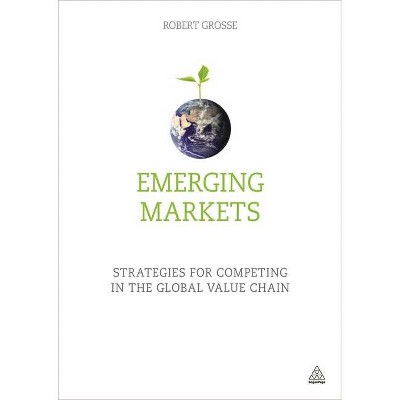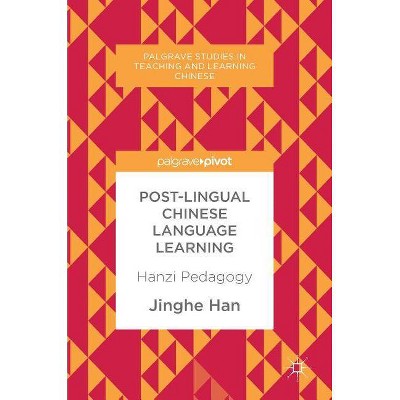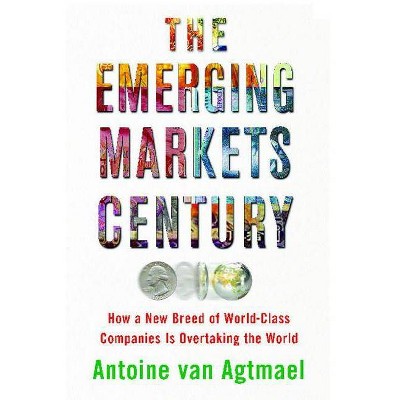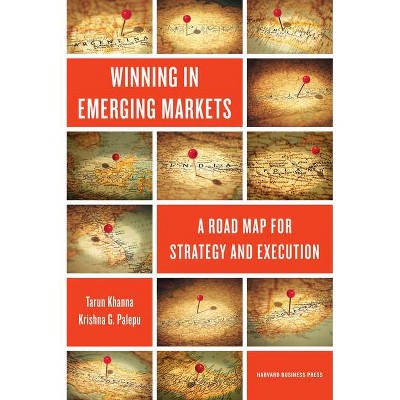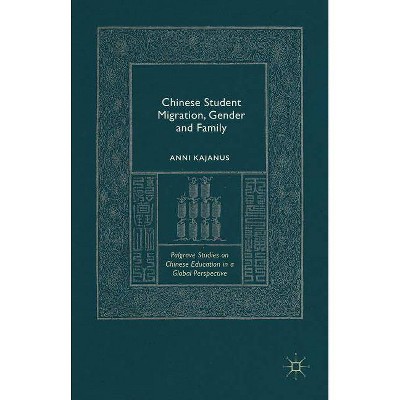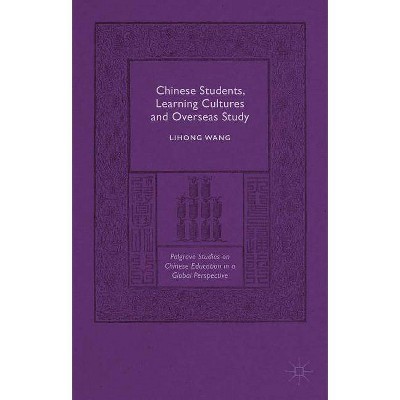The New Chinese Dream - (Palgrave Studies of Internationalization in Emerging Markets) by Francesca Spigarelli & John R McIntyre (Hardcover)
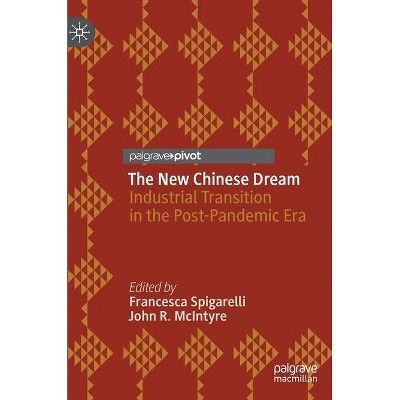
Similar Products
Products of same category from the store
AllProduct info
<p/><br></br><p><b> Book Synopsis </b></p></br></br><p><b>Introduction</b> </p> <p>By Ilan Alon, John Mc Intyre, Francesca Spigarelli</p> <p>The role of industrial policies in the transition of Chinese economy, the Covid19 impact on the rush for innovation supremacy; the conflicting situation with the US and different use of industrial policies</p> <p> </p> <p>Chapter 1 </p> <p><b>Structural changes of the Chinese economy: from the New Dream to Covid19</b></p> By Marco Di Tommaso, Lauretta Rubini, Elisa Barbieri, Francesca Spigarelli<p></p> <p> </p> <p>The chapter analyses key trends of the Chinese economy, including policies developed by the Government to push the Chinese dream and - recently - to overcome the Covid19 crisis.</p> <p></p> <p>Chapter 2</p> <p><b>Can China be less dependent on exports?</b></p> <p>By Risto Herrala; Fabrice Orlandi</p> Bank of Finland Research Institute for Economies in Transition (BOFIT)<p></p> <p>risto.herrala@bof.fi</p> <p> </p> <p>Authors provide a general description of how Chinese economic growth in the last 20 years contributed/impacted on other countries' economic development and how Chinese economy is changing its drivers of growth from exports to consumption.</p> <p>Key questions are: will the size of the Chinese economy reach the historically given high point of the 16th century (25% of world product?) When does China stop growing in its various industry sectors?</p> <p> </p> Chapter 3<p></p> <p><b>Chinese innovation capacity: state of the art of the leading edge</b></p> <p>By Peter Enderwick</p> <p>AUT University, New Zealand</p> peter.enderwick@aut.ac.nz<p></p> <p> </p> <p>The book chapter examines knowledge channels and required knowledge types that are allowing China to capitalise on Industry 4.0 process technologies and improve innovation absorptive capacity.</p> <p></p> <p> Chapter 4 </p> <p><b> Chinese diplomacy, strategic partnerships and global economic supremacy</b></p> Maria Papageorgiou, Fabio dos Santos Cardoso<p></p> <p> University of Minho, Portugal</p> <p> gbamary@hotmail.com</p> <p>The book chapter examines strategic partnerships as an essential part of Chinese diplomacy that moves away from strict realist considerations of alliances and security ententes accounting for differences in intensity and areas of cooperation. Borrowing elements of the network model from business studies, this chapter aims to understand China's building process as a global power drawing on the similarities with firms' internationalisation process. </p> <p> </p> <p></p> <p>Chapter 5</p> <p><b>Digital economy: the role of data-driven industies and Chinese Giant Tech Companies </b></p> <p>Lawrence Mensah Akwetey, Patricia Mintah Mensah</p> <p>University of the West of Scotland London Campus, United Kingdom</p> <p>lawrenceakwetey@hotmail.com</p> <p> </p> <p>The book chapter investigates the role of Chinese tech companies in the transition of the Chinese economy towards a fully developed economy. How many more Huawei-type firms will arise in the coming period before 2049 as set by the Party Organs? The book looks to the old policy script of China 2020 which identified key areas in which China was mustering its resources.</p> <p>The paper also assess to what extent Chinese giant tech firms can help other under developed countries to fill in their technology-gaps, thus promoting the role of China at international level. </p> <p> </p> <p>Chapter 6</p> <p><b>Leapfroging - The Life science industry sector </b></p> <p>Nuoya Chen and Dominique Lepore</p> Univer<p/><br></br><p><b> From the Back Cover </b></p></br></br>This volume describes the most salient changes faced by key Chinese industry sectors as defining components of global and domestic macroeconomic performance. Set within the context of the Global China 2049 initiative, which aims to transform the country into a fully advanced and developed nation, chapters focus specifically on industrial policies that are considered to be one of the main determinants of Chinese growth.<p>Covering sectors such as healthcare, aerospace, microprocessors and other data driven industries, chapters highlight the pitfalls and anticipated successes of Chinese firms operating in the global competitive market. Importantly, the book fosters debate on how Chinese industries will achieve competitive growth in the post-pandemic era. Ultimately the book discusses the likelihood of China achieving a leading position in terms of processes and innovation and suggests a road to future research on China's industrial trajectory.</p><p><br></p><p><b>Francesca Spigarelli</b> is Associate Professor of Applied Economics, at the University of Macerata and Director of the China Center. She is Vice Rector for Entrepreneurship and Technological Transfer and for European research policy and is member of the board of Chinese Globalization Association (www.chinagoesglobal.org).<br></p><p><br></p><p></p><p><b>John McIntyre </b>has been Director of the Georgia Tech Center for International Business Education and Research (CIBER), a national center of excellence, since 1993 and a full Professor of International Business Management and International Relations with joint appointments in the College of Management and the Sam Nunn School of International Affairs of the Georgia Institute of Technology, Atlanta, Georgia.</p><p/><br></br><p><b> About the Author </b></p></br></br><p><b>Francesca Spigarelli</b> is Full Professor of Applied Economics, at the University of Macerata and Director of the China Center. She is Vice Rector for Entrepreneurship and Technological Transfer and for European research policy and is member of the board of Chinese Globalization Association (www.chinagoesglobal.org).<br></p><p><br></p><p></p><p><b>John McIntyre </b>has been Director of the Georgia Tech Center for International Business Education and Research (CIBER), a national center of excellence, since 1993 and a full Professor of International Business Management and International Relations with joint appointments in the College of Management and the Sam Nunn School of International Affairs of the Georgia Institute of Technology, Atlanta, Georgia.<br></p><p></p>
Price History
Price Archive shows prices from various stores, lets you see history and find the cheapest. There is no actual sale on the website. For all support, inquiry and suggestion messagescommunication@pricearchive.us

